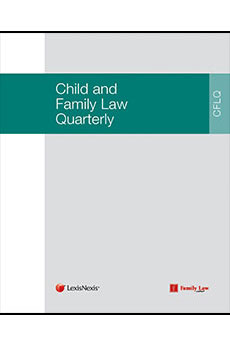- News & Comment
-
Online Shop
Online Services
Looseleafs
Law Reports
Books and eBooks
-
CPD & Events
Webinars
Events
- Authors
- About Family Law
- Contact


Keywords: International child protection – Hague Children Convention 1996 – Jurisdiction – Transfer of jurisdiction
In England and Wales, children involved in public law care proceedings may have significant familial connections with family abroad. In these circumstances, the English court must consider whether they have jurisdiction to make decisions over the child. Inherent to the decision on jurisdiction over the child’s welfare is the question of where the child ‘belongs’, usually determined by identifying the child’s habitual residence. This process legitimates the English courts’ decision-making over the child. This article examines the transfer of jurisdiction under the Hague Children Convention 1996, and stays of jurisdiction under the principle of forum non conveniens for their use in child protection proceedings, considering the justifications for disrupting the primacy of habitual residence as a connecting factor and the assessment of the child’s best interests in this context. It considers how international family law implicitly engages with the concept of ‘place belonging’ when it ascribes legal meaning to locating a child subject to care proceedings. This concept is used to analyse the extent to which disruptions to the child’s habitual residence as the primary basis of jurisdiction must consider the best interests of the child.
This article has been accepted for publication in Child and Family Law Quarterly in Issue 6, Vol 34, Year 2022. The final published version of this article will be published and made publicly available here 24 months after its publication date, under a CC-BY-NC licence.






